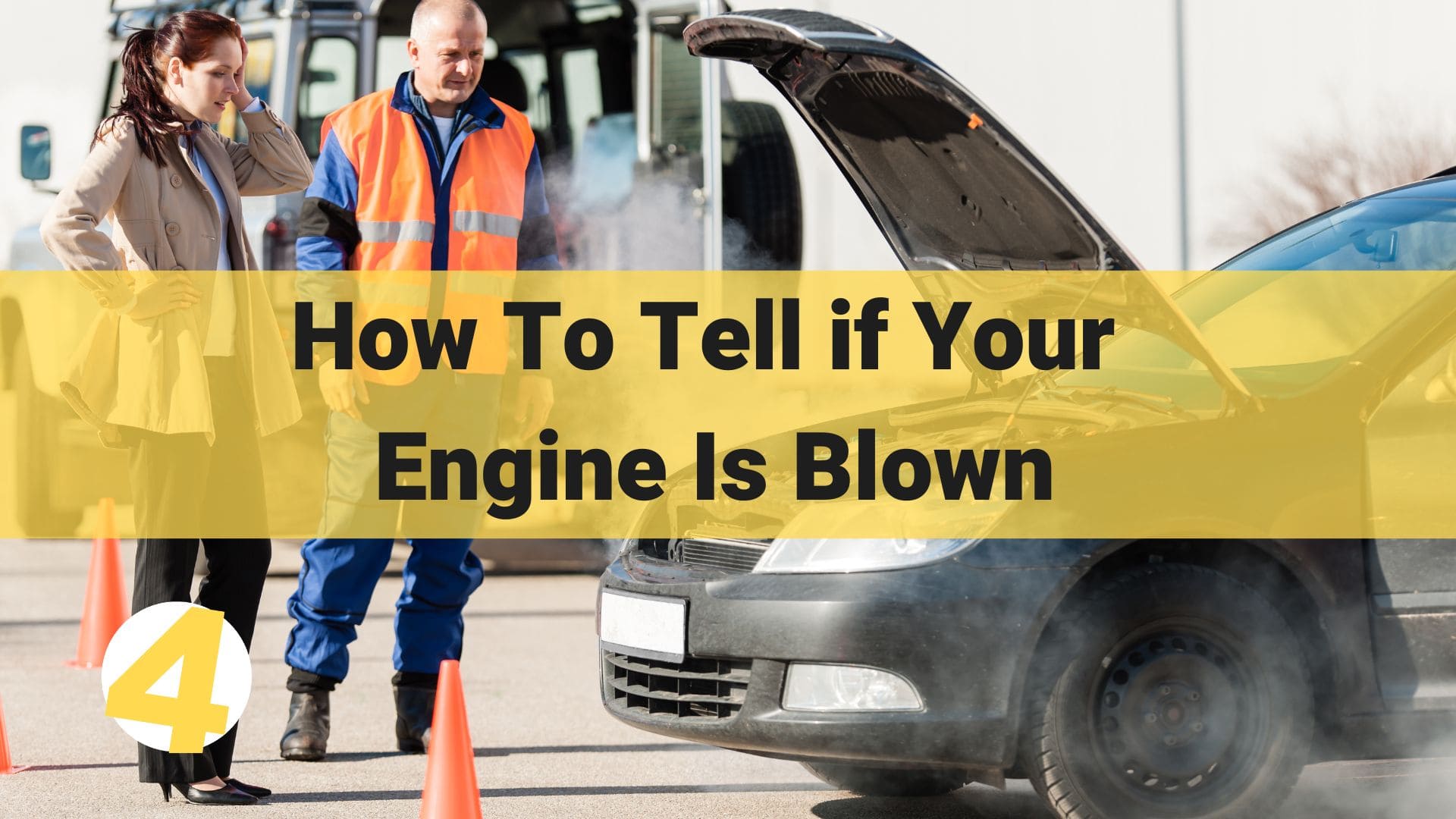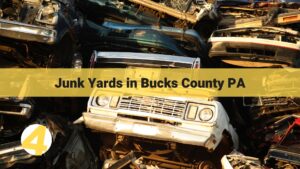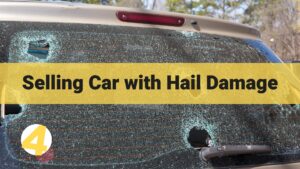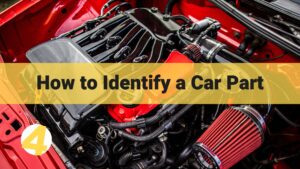To determine if your engine is blown, check for unusual noises, reduced power, excessive smoke, and overheating. If you notice these signs, it’s time to consult a mechanic.
Keep reading to learn about how to tell if your engine is blown, including the diagnosis and preventive measures for engine issues.
Diagnosing a Blown Engine
Remember to perform these three steps in diagnosing a blown engine:
Step #1: Visual Inspection for Damage
First things first, take a good look at your engine. This isn’t just about peeking under the hood; it’s about being a detective. Check for any obvious signs of trouble, like leaks. If you see oil where it shouldn’t be, that’s a warning sign.
Also, keep an eye on the exhaust. If it’s pumping out blue or white smoke, that’s another red flag. And don’t ignore any visible damage to the engine parts – that’s your engine crying for help.
Step #2: Listening to Your Engine
Engines are supposed to purr, not knock or rattle. If you hear any weird noises like knocking, banging, or anything that doesn’t sound right, that’s a big hint something’s wrong inside. These sounds can mean your engine parts are wearing out or banging against each other, which is never good.
Step #3: Checking Engine Performance
Last, pay attention to how your car feels when you drive. If the engine is losing its mojo, you’ll feel it. Maybe it’s not as powerful as it used to be, or it’s struggling to keep up. Rough idling, stalling, or the dreaded check engine light are all signs your engine might be in trouble.
It’s like when your body feels off, and you know you need to see a doctor. Same thing with your car – if it feels off, it probably is.
Figuring out if your engine’s blown isn’t rocket science. Look for leaks, listen for strange sounds, and feel how your car is driving. If something feels off, it’s better to get it checked out sooner rather than later.
How to Spot a Blown Engine?
An engine failure means your car’s engine stops working right. It’s when you turn the key, and instead of the engine roaring to life, it either makes a sick sound or does nothing. This happens in all types of vehicles, whether you’re driving a beater or a fancy sports car.
An engine failure can be contained, which means the mess stays inside the engine or uncontained, where parts might actually break free from the engine. Either way, it’s bad news for your ride.
Why Do Engines Fail?
Several reasons can cause your engine to give up. Sometimes, it’s just old age or poor maintenance. Other times, it could be more serious, like a broken part inside the engine.
External factors like dirty fuel or even a bird strike (yeah, that happens, especially in turbine engines) can also mess things up. The key thing to remember is that an engine is like the heart of your car. If it goes, so does your car’s ability to move.
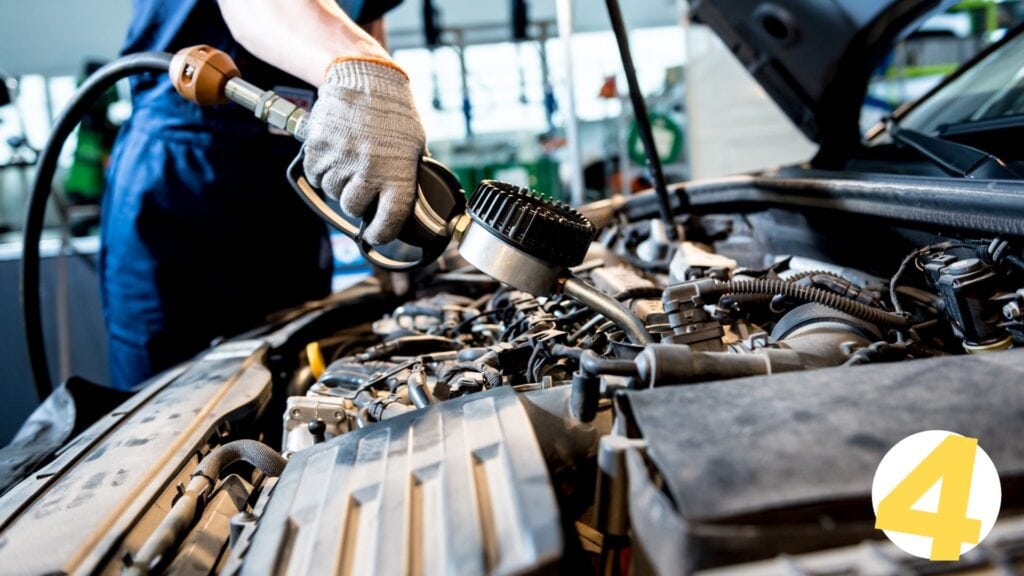
Spotting a Blown Engine Early
Knowing the signs of a dying engine can save you a lot of trouble. Here are the common signs of a blown engine:
- Weird noises coming from the car, like knocking or banging
- Black smoke coming out of your exhaust
- A sudden drop in power
- The engine is getting way too hot
- Your dashboard lights up like a Christmas tree
These symptoms mean your engine could be on its way to a salvage yard or a junkyard, and it’s better to catch it early. Remember, a blown engine isn’t just an inconvenience; it’s a clear signal that your vehicle needs some serious attention.
Knowing what to look out for and understanding why engines fail can save you from being stranded or facing expensive repair bills.
Technical Aspects of Engine Damage
Here are the aspects you must look into when checking your engine for damage:
Mechanical Failures in Engine Components
The engine is like a puzzle; when one part goes bad, it can cause a domino effect. Common culprits include worn-out pistons, busted valves, or even a snapped timing belt. These issues can cause your engine to lose power, make weird noises, or worse, completely break down. It’s like a chain – if one link breaks, the whole thing’s useless.
Electrical Issues Leading to Engine Problems
Your car’s electrical system is what gets the engine going. If something’s off with the electricals, like a dead battery or a fried alternator, your engine won’t start. Even small things like spark plug issues or a bad sensor can lead to big problems. Electrical issues can be tricky and dangerous to fix on your own, so it’s usually a job for the pros.
Impact of Overheating and Lack of Maintenance
Overheating and skipping maintenance are big no-nos. Think of your engine like your body. If it overheats, it’s a sign something’s wrong. On the other hand, small problems can turn into big ones due to a lack of maintenance. Regular oil changes, cooling system checks, and overall maintenance are key to keeping your engine healthy.
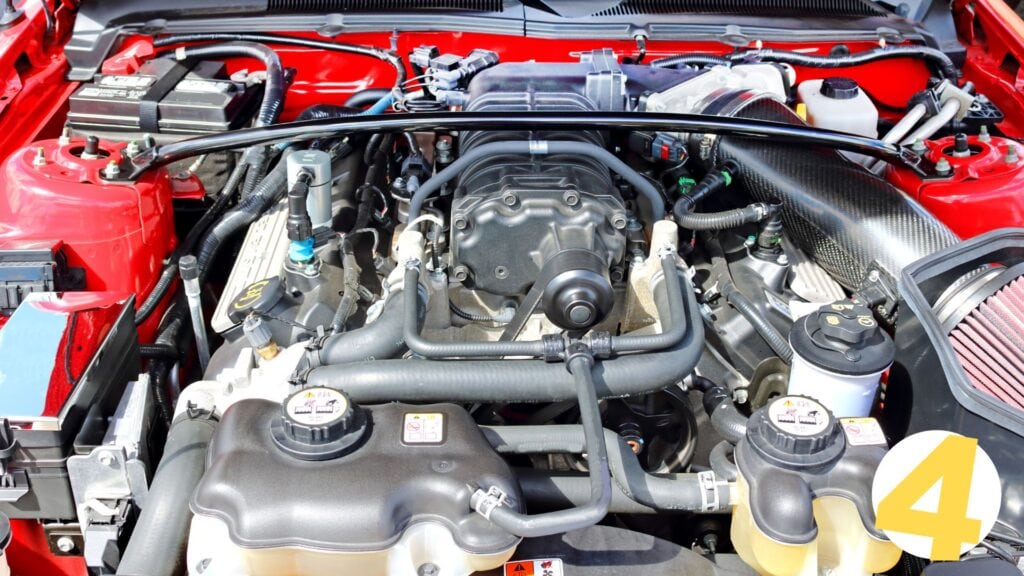
Regular Maintenance Tips for Engine Health
Keeping your engine in shape is key to a long-lasting car. Regular oil checks and changes are crucial. Dirty or low oil can kill an engine fast. Keep it clean, too – dirt and grime are bad news for engine parts. Also, don’t forget about the air filter. A clogged filter means your engine has to work harder, which isn’t good. It’s simple: treat your engine right, and it’ll treat you right.
Importance of Professional Engine Diagnostics
Sometimes, you need a pro to take a look. Modern engines are complex, and figuring out what’s wrong isn’t always easy. Professional diagnostics can pinpoint problems that you might miss. They have the tools and know-how to give your engine a thorough check-up. It’s an investment that can prevent major repairs later.
FAQs – How To Tell if Your Engine Is Blown
How Much Is a Car With a Blown Engine Worth?
When determining a car’s worth with a blown engine, several factors come into play, including the vehicle’s make, model, year, mileage, and overall condition. Generally, you can expect a significant reduction in the car’s value due to the engine’s condition.
For instance, a car worth $9,000 in good condition might fetch around $6,000 if it has a blown engine, indicating a decrease of about $3,000. However, the range can vary widely. On average, the price for a car with a blown engine can fall anywhere from $400 to $2,000, depending on the aforementioned factors.
In 2023, the average value of a car with a blown engine has been observed to be around $1,000 to $1,100, but this can fluctuate significantly. A car with a bad engine could see its trade-in value decrease by at least $4,000 compared to its value with a functioning engine. This decrease reflects the substantial cost and effort required to repair or replace a blown engine, which often outweighs the car’s residual value.
It’s important to note that these values are approximate and can vary based on specific conditions and market demand. For the most accurate assessment, it’s advisable to consult with professionals who specialize in evaluating and purchasing cars with engine problems.
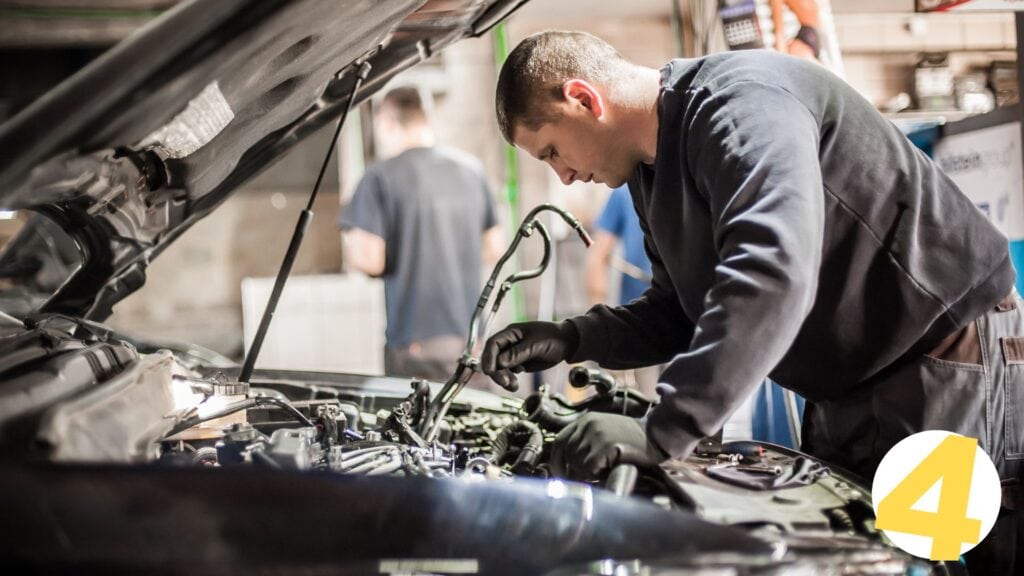
How Many Years Should an Engine Last?
On average, engines run for about 250,000 to 300,000 miles. But it’s not just about mileage; how you drive and take care of your car plays a big part, too. Regular maintenance, smooth driving, and keeping an eye on engine health can help your engine last longer.
How Do You Check To See if an Engine Is Good?
Start with the basics. Check the spark plugs, ignition coils, fuel filters, and sensors. These parts can tell you a lot about your engine’s condition. If they’re dirty or worn out, replacing or cleaning them can boost your engine’s performance. When you’re not confident in your mechanic skills, it’s best to get a pro to take a look.
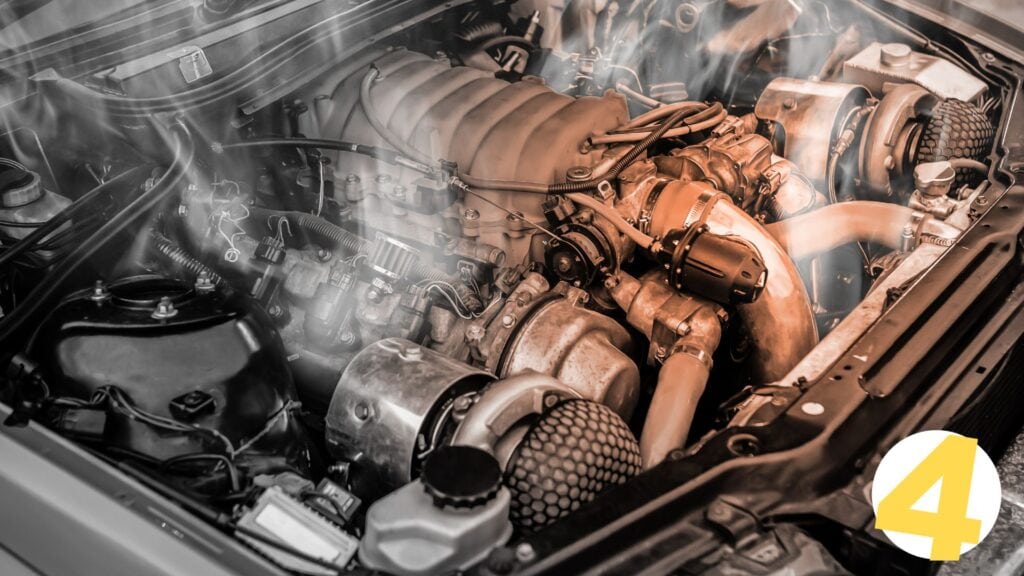
Why Choose Cash4Cars in Philadelphia?
In cases when the engine is badly hit, or it would be more practical to buy a new car than opt for a costly repair, your car may have hit the end of its life. But it can still help because you can instead sell a junk car and earn cash.
This is where we can help. At Cash4Cars, we specialize in taking the hassle out of selling your old, damaged, or non-functioning vehicles due to blown engines. We provide free pickup, which eliminates the need for you to arrange transportation for your vehicle. Our focus is not just on buying your junk car for cash; we aim to offer the best value. Rest assured, you will get a fair deal no matter the make, model, or condition of your vehicle.
Call us now to get a free, no-obligation quote. Choose Cash4Cars for a smooth, rewarding experience in junk car selling.

